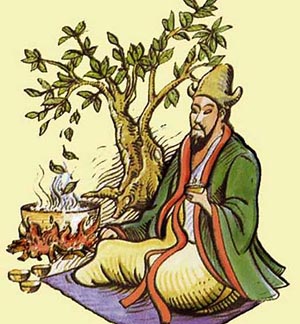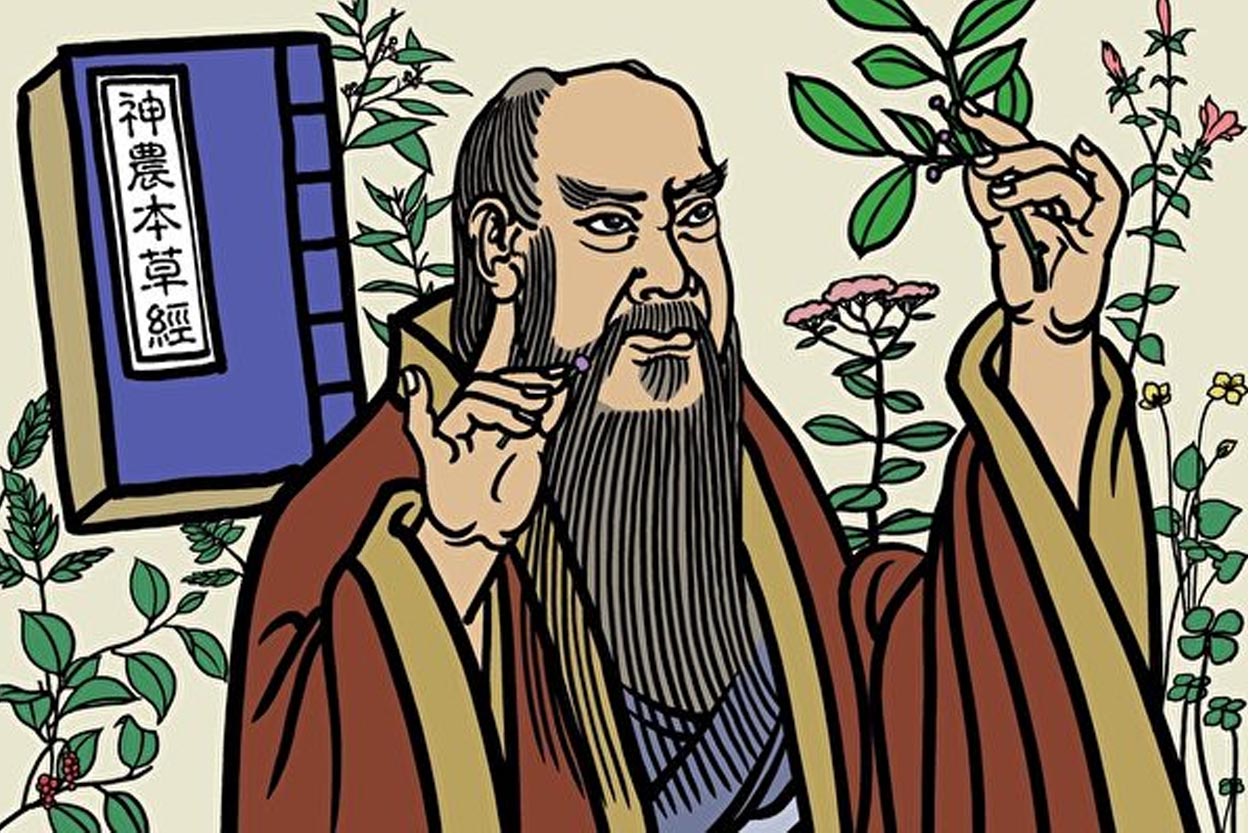Shen Nong (神農) is a legendary figure in ancient China. Literally, shen is deity or god (神) nong agriculture (農), Shen Nong, therefore, means god of agriculture.
In ancient times, people lacked food and suffered from hunger. It is said that during the time of Shen Nong, people started to gather seeds and fruits for food. But mankind at that time still did not know which fruits, seeds, roots, stems and leaves were edible.
To save mankind from hunger, Shen Nong risked his own life to taste various wild plants himself.
He recorded the characteristics and tastes of each fruit, root, stem, and leaf of the plant to let people know if a plant was edible or not. He also took note of its uses and effects.
It is said that in the course of tasting plants, at the time, Shen Nong had eaten more than 70 kinds of poisonous plants in a day, which made him dizzy, vomit and suffer from diarrhea, which almost cost his life several times.

With Shen Nong’s courageous tasting of the hundred kinds of grass (嘗百草) he had found the source of food for mankind’s subsistence and propagation.
Shang bai cao (嘗百草) is a figurative expression. Shang (嘗) means to taste-test, bai (百) here connotes numerous not limited to only a hundred, and cao (草) symbolizes plants not limited to grass.
Mankind eventually learned how to plant crops and utilize plants as well as explore the use of plants to cure sickness.
It’s no wonder, with Shen Nong’s tasting the hundred kinds of grass, the Chinese have the tradition of using herbal medicine for xx years. Thus, herbal medicine is 草藥 in Chinese – literally grass (cao) medicine (yao).
For the sake of mankind, Shen Nong was willing to suffer and sacrifice himself to the extent of risking his own life. — First published in Tulay Fortnightly, Chinese-Filipino Digest 26, no. 3 (July 9-22, 2013): 5.
